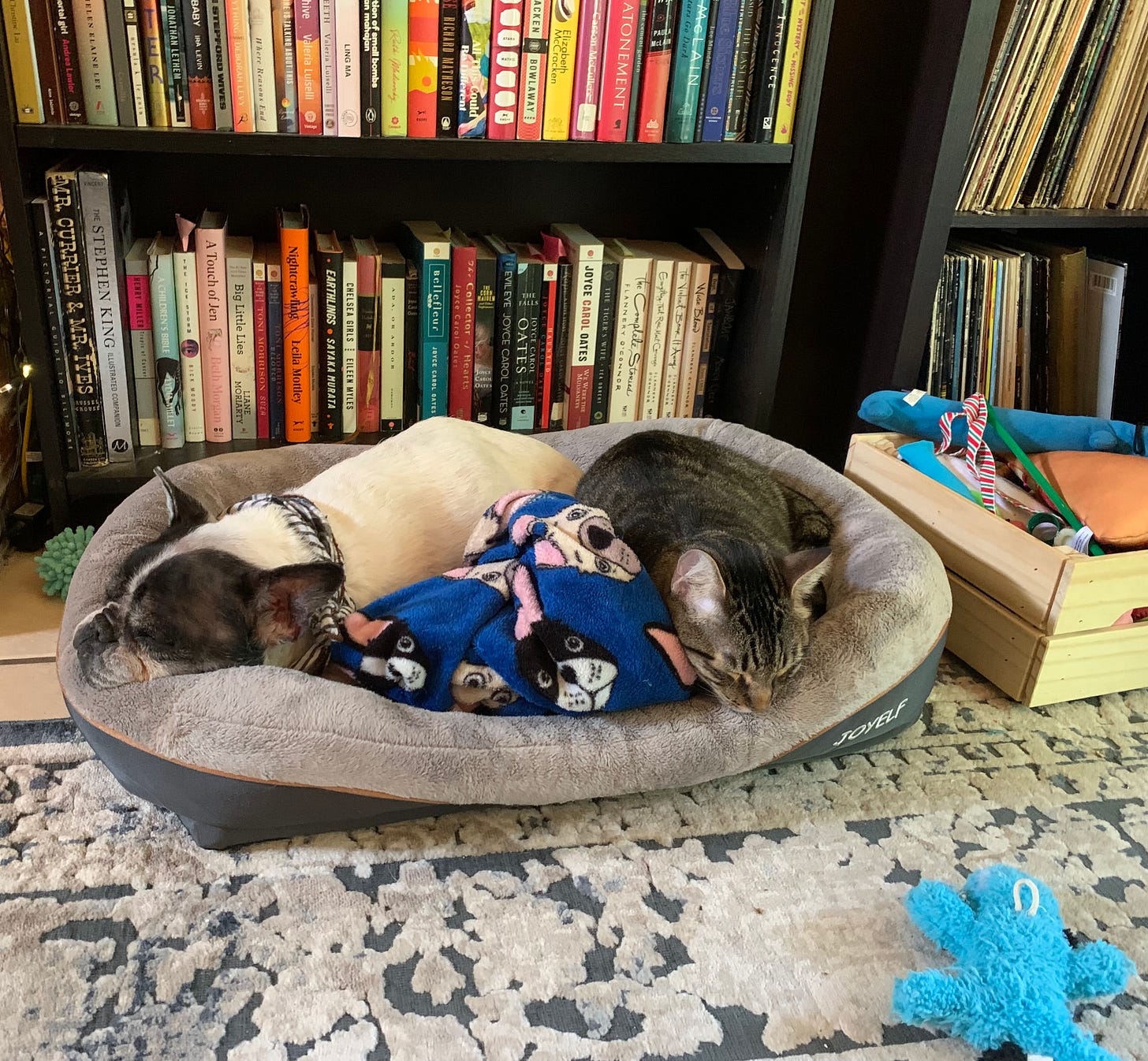Dad's Mini Lesson - Weeding Your Books
Some tips from your Library Dad on tending to your personal collection
I thought it might be nice to occasionally post a mini lesson on the things that I enjoy working on in my own life; stuff that I already know a little something about. This week, as I was going through my bookshelves - again, I do this regularly - I wondered if it might be helpful to have a discussion here about what makes weeding so important when it comes to curating your collection.
If you don’t know already, “weeding” is the practice of going through your library and culling materials that no longer serve you. It’s something that I learned through my decade-plus of working in libraries, and we also went over it in library school (I have a masters in library and information science). Occasionally, you’ll see posts online of people sincerely freaking out about libraries pulling materials from the shelves for discard. The truth is, this has to happen regularly! Libraries are physical buildings with a finite amount of space. There are only so many shelves, so many places where they can ostensibly store materials. Hence, weeding! It’s (generally) a good thing!
Now, if we’re applying this to a home collection, obviously you can put your own rules in place. It’s important to have structure, to consider what things you want to keep and what items can be donated. Here are some things that I consider whenever I’m going through my own stacks and stacks and STACKS of books:
First, I ask myself to be honest. Have I read this book in the past two years? Would I read this book again in the future? If the answer to both of these questions is no, then I consider donation.
Just because a book is pretty or is a “classic” doesn’t mean I have to personally own that book. Are you keeping a book because you feel like you should? Because it’s a “smart” book? If you don’t actually want to read it, consider donation.
Is this a book that’s gone out of print? If I look this book up online, am I able to find a replacement copy for a reasonable price? If I can find a copy easily (and the previous rule applies - I haven’t read it in two years), I consider donation.
Further, please consider that your home library is in conversation with your public library. That collection is not separate from your own. Rather, you should consider these collections as supplementing each other. If you want to get rid of a book, but aren’t sure if you’ll want to read it again in the future, consider that your local library can provide access.
If the book is signed by a friend with a personal message, I will keep that book. However, if I don’t see myself rereading any time soon, I move the book to a location that’s not taking up high traffic real estate on my immediate shelves. It could go into a box or possibly into storage. If the book is simply signed with only a name and I know that I will no longer read the book, I consider donation.
Is this my wife’s book? Hands off! She gets to decide!
A recent rule I’ve put in place: is this a book that’s important with regard to queer canon? Is it possible that under our upcoming administration that this book might become near impossible to access? I’ll keep the book.
The thing about rules is that they’re bendy and you can shift them in whatever direction feels right to you. Nothing needs to be permanent. Library work is flexible, moldable. You do whatever best serves the collection and your community. For a home library? YOU are the community! Develop rules that feel right for you. Libraries are living, breathing collections. They should shift and grow; expand. When you cull books that no longer serve you, you leave the door open to bring in new material. That’s a good thing!
Growing up, I didn’t have ready access to books, so as an adult, I began keeping ALL of them - I realized that I was hoarding them because subconsciously I was worried that if I gave them away then I might never see them again. That’s not true, and to be honest, not fair to the materials. There are very nice books that I know someone else might enjoy and if I’m just keeping them for the sole purpose of owning them? That’s treating it like an object, not a book! I had to learn that giving books away was not the same thing as throwing them out.
Throughout my time working in public libraries (I’ve also worked in academic and law libraries), donations were the lifeblood for our tiny collection. It enabled us to put some of these materials on the shelf for community use. If you donate your unwanted materials to a library, you can feel good about the fact that you’re allowing someone else to enjoy this stuff.
There’s much more to discuss here, but I think that’s plenty for today. And if you haven’t already, go get your damn library card!!!!!!!!!!!!!
Also! Just a reminder that I’ll be posting my next official lesson this upcoming Thursday - and it’s going to be about making a beautiful steak!!!! Please consider becoming a paid subscriber to get access to all of that.
Love,
Dad





